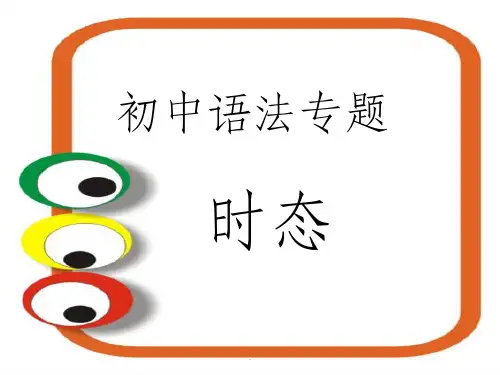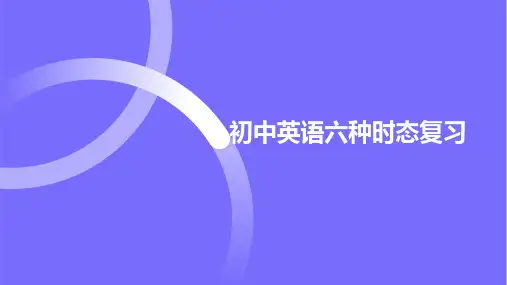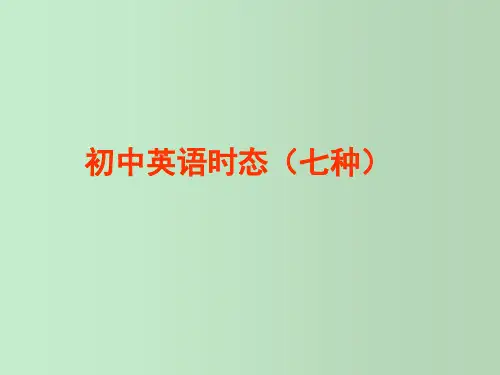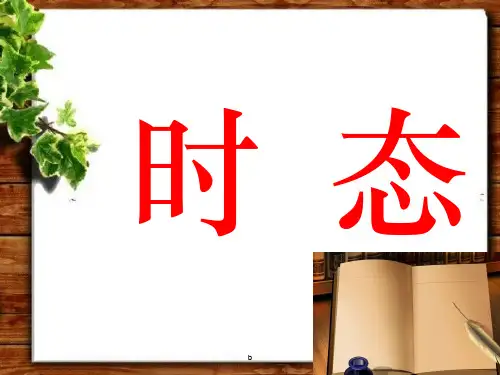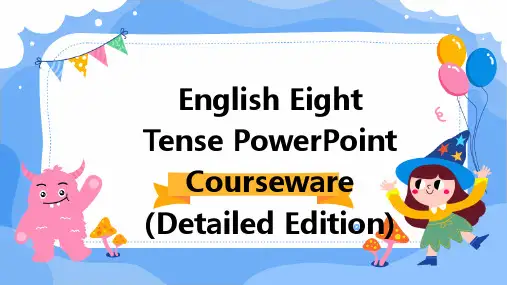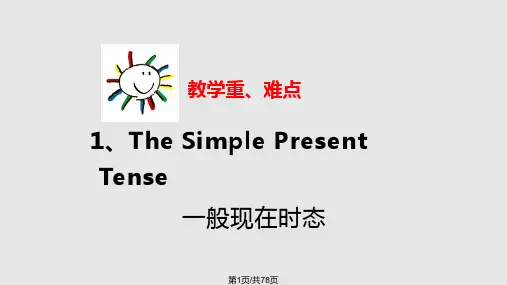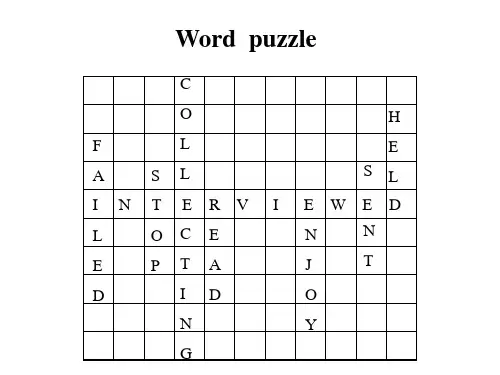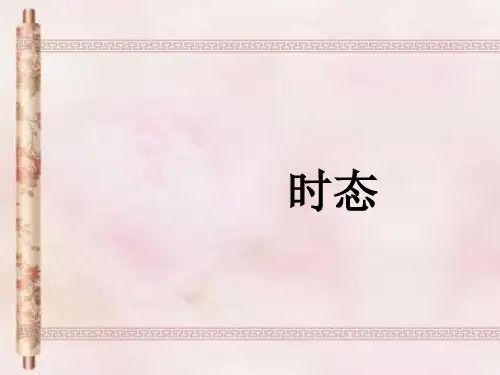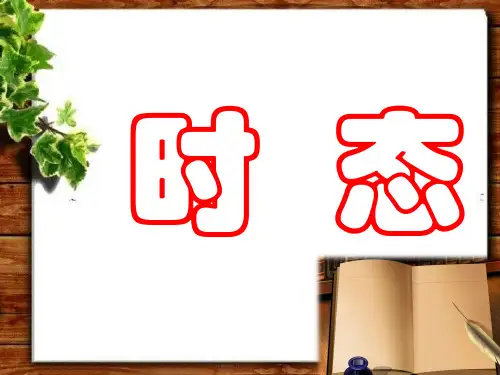第2页/共19页
Ⅱ.一般过去时
1. 谓语构成: be (was were), have (had),其他人称用 过去式。
2. 一般过去时的使用:
(1).表示在过去某一时间发生的动作或存在的状态。常 与yesterday, last Sunday morning, last year, two hours ago, just now, the other day, once upon a time等表示过去的时间状语连用。
2. 一般现在时的使用 (1)表示经常发生的或习惯性的行为或状态。常与 always, usually, often, sometimes, at times, every day, on Sundays, never 等。 (2)在时间状语、条件状语、让步状语从句中常用一 般现在时表达将来时的概念,主句用将来时。
Exercises: ①学生们经常在物理实验室做实验。 ②你吃了这药之后会感觉好一些的。 ③只要明天不刮风我就去溜冰。 ④即使明天下雨我也得走。
第1页/共19页
1. The students often do experiments in the physics laboratory. 2. After you take this medicine, you will feel better. 3. As long as it is not windy tomorrow, I will go skating. 4. Even if it rains tomorrow, I will leave .
第18页/共19页
感谢您的观看!
第19页/共19页
第8页/共19页
Ⅳ. 过去将来时
1. 谓语构成: would 或should+动词原形 2. 过去将来时的使用:
